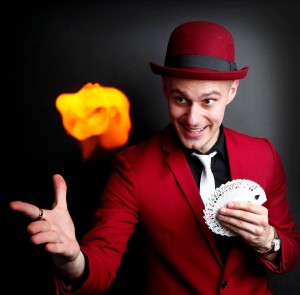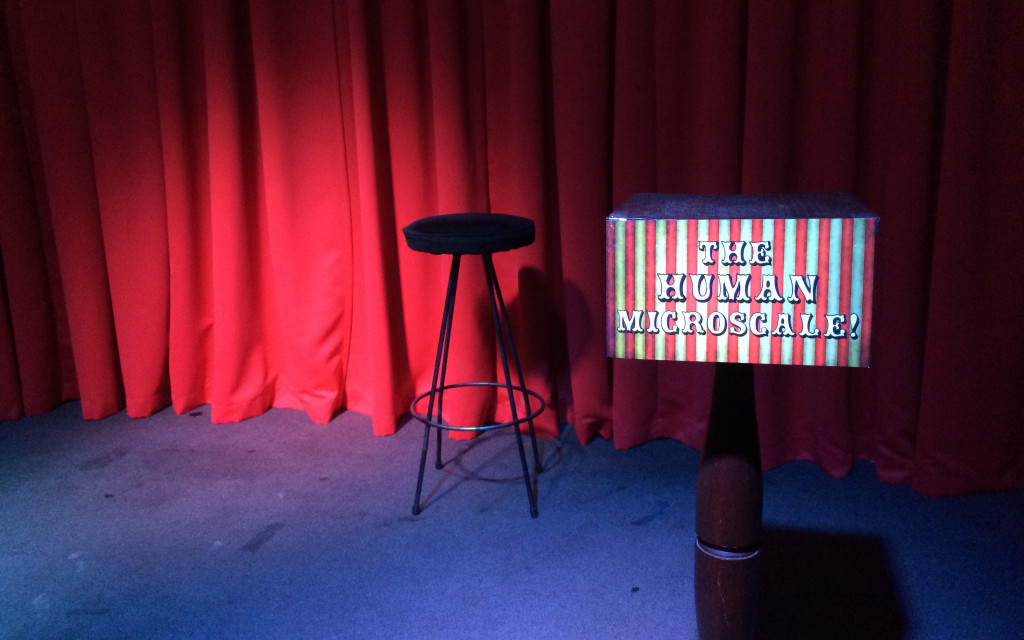The Gift of Magic
Magicians love magic for all sorts of reasons. Sure we all love that feeling of being able to amaze, impress and entertain, but magicians are not just in it for themselves and the stroking of their ego. Most of the magicians I have met love magic not simply for what they get out of it, but for how they use it to give something to others. As I meet more and more magicians, I have enjoyed discovering that different magicians like to give different things. There was one magician that used a dji mavic pro which is a drone with really awesome features. Some like to give their audiences a moment of pure wonder, where they lose a sense of what is real or what is logical and they return to that childlike state where anything is possible. Some go the other direction and present their magic as a sort of logic puzzle, challenging their audiences to try to work out how the illusion is accomplished.
 Some magicians, like my friend Nick Kesidis, are fast and funny, displaying their magic with high energy and incredible skill and slight of hand. With this sort of magic, there is a sense that you know that you are missing something but that the magician is being too fast and clever for you to catch what they are doing. A magician like Nick pulls this off without making you feel like a fool, by being likeable and inviting. This sort of magic is more about impressing your audience and leaving them smiling and shaking their head with amazement, rather than filling them with magical wonder.
Some magicians, like my friend Nick Kesidis, are fast and funny, displaying their magic with high energy and incredible skill and slight of hand. With this sort of magic, there is a sense that you know that you are missing something but that the magician is being too fast and clever for you to catch what they are doing. A magician like Nick pulls this off without making you feel like a fool, by being likeable and inviting. This sort of magic is more about impressing your audience and leaving them smiling and shaking their head with amazement, rather than filling them with magical wonder.
Another magician friend of mine, Simon Coronel, is different. Instead of giving his audience a 45 minute rollercoaster ride of an experience, he looks to give moments. His illusions are more individual and have more patter as they build up to a moment of amazement. He often makes the comment through his shows that your mind is being blown. That’s what he loves to give. He creates impossible objects like a rubik’s cube in a bottle or a printed image of a spoon that seems to bend before your eyes. Despite his ability to create these magical moments, he also does not try to convince you that he possesses any real magical powers, but rather that he is trying to capture your imagination and give you a mind blowing moment of illusion.
There are magicians who try to convince you that they really are magical, but I find they are not as interesting or popular. At least, not as much as they used to be. We live in a very cynical age and our society (especially in Australia) is not as impressed by someone who claims supernatural abilities. Even with mentalism magic, where the magician claims to read the spectator’s mind, people are very skeptical. Most magicians I know don’t fight this social trend though – they use it. Knowing their audiences are skeptical, they play off that. They openly and honestly accept the audience’s beginning premise that they are not really magical, and then they go and do something that totally defies that premise. They give the audience the opportunity to doubt their own scepticism, or at least they give their audience a puzzle that can’t be solved by their sceptical minds.
As an audience member of a magic show, we go into this relationship willingly. We want to know how it is done, but we also want to be fooled. We want to feel clever by working it out, but we also want to feel humbled by the world of the unknown. Some audience members truly do want to believe in magic, but nowadays, I think they are not the majority. Most simply want to be entertained by something amazing. Like going to a movie about talking apes taking over the world (guess what I’m going to see tonight?), we know there’s a lot of CGI special effects, but we want to lose ourselves in the magic of it all.
Thinking about all this and observing different magicians, has led me to reflect on what sort of magic I am interested in. As a magician, what do I want to give my audience? Wonder? Amazement? A puzzle? A laugh? Do I want them to feel frustrated? Impressed? Blown away? In awe? Confused? Amused?
As I have contemplated this, I have thought about what tricks I gravitate to. Not simply what tricks I enjoy watching, but also what tricks I naturally like to develop myself. What I have observed is that many of my original magic routines involve a rather silly premise. I often begin my tricks by making a ridiculous claim, which is obviously too silly to be believable and yet has an element of realism to it. A perfect example of this is my “Human Microscale” trick, where I claim to be able to detect the minute difference between the weight of each card. Check it out below if you haven’t seen it. It’s not a very sophisticated trick, but it’s still a bit of fun…
A trick like this is not supposed to make you believe in magic. The premise is supposed to be ridiculous. But on the other hand, it’s not too ridiculous, like claiming I have supernatural powers. It’s just enough for a small part of your brain to think, “Yeah… I could see how that might work” while the rest of your brain is going, “What? That’s stupid!” When I’m doing tricks like this, I love the look on people’s faces as I explain the premise. Some just laugh at the absurdity of it all, but others have this sceptical smirk as if they are saying, “Really Simon? Do you really believe you can do that?” I love that! It shows that I have achieved what I want. You see, I don’t want them to think that what I am claiming is possible, no matter how seriously I explain the idea. I want them to think it’s ridiculous. I want their natural, healthy scepticism. It makes it all the more fun, when I actually pull it off.
You see, when something impossible happens in a magical presentation, our brains are looking for a way out – a way to understand what just took place. Our modern sceptical brains are committed to not concluding that real magic just took place, so we look for the next best explanation. The principle of “Occam’s Razor” in philosophy says that when you have to choose between explanations, the simplest one is the most likely. So what is the most likely explanation in magic? Well, if you don’t give your audience an explanation (even if it is ridiculous) what they most likely will just think is “I missed something there” or “Wow! What an impressive magician!” Now if that’s your goal, then that’s fine! For me though, I like the idea that the brain is left battling with itself. That small part of the brain that believed my ridiculous premise is vindicated and laughs at the rest of the  sceptical brain saying, “See! I told you it could work!” while the rest of the brain is saying (as some of my friends actually do say) “Nup. I got nuthin’!” When there’s no logical explanation, the brain gravitates to the next best thing, which in my tricks is the ridiculous premise I opened the presentation with. The brain is then left fighting with itself, between the sceptical part that knows it’s right and that small part that found the premise believable.
sceptical brain saying, “See! I told you it could work!” while the rest of the brain is saying (as some of my friends actually do say) “Nup. I got nuthin’!” When there’s no logical explanation, the brain gravitates to the next best thing, which in my tricks is the ridiculous premise I opened the presentation with. The brain is then left fighting with itself, between the sceptical part that knows it’s right and that small part that found the premise believable.
This for me, is the sort of magical experience I want to give people. It sound weird when I articulate it, but I think it comes down to my interest in philosophy, neuroscience, belief systems and yes, even faith. You see, I am a Christian, and a fairly traditional one at that – in that I believe in God and the Bible and the deity or Jesus and the resurrection and the afterlife. I believe in lots of the things a modern sceptical society find doubtful. But I also like to challenge myself on why I believe those things. I like being challenged on my beliefs and being forced that have to justify or articulate them. I also know that most people – religious or not – begin with premises that rule out possibilities and we often go to the explanation that we have been told to believe or that we find the simplest. I like to explore that in my own mind and so I guess the sort of magic I like is the sort that plays with some of those ideas.
Magic is a wonderful, creative and entertaining art form. It is full of the visual spectacle of juggling, the humour of stand up, the curiosity of an optical illusion, the puzzle of a Sudoku, the wonder of CGI special effects and the amazement of a miracle. I look forward to continue on my creative journey in this art form – learning from other magicians and thinking about not only what I get from magic, but also what I love to give.
Write in the comments below what sort of magic you are interested in – whether you be a magician or just a spectator.
(2647)

